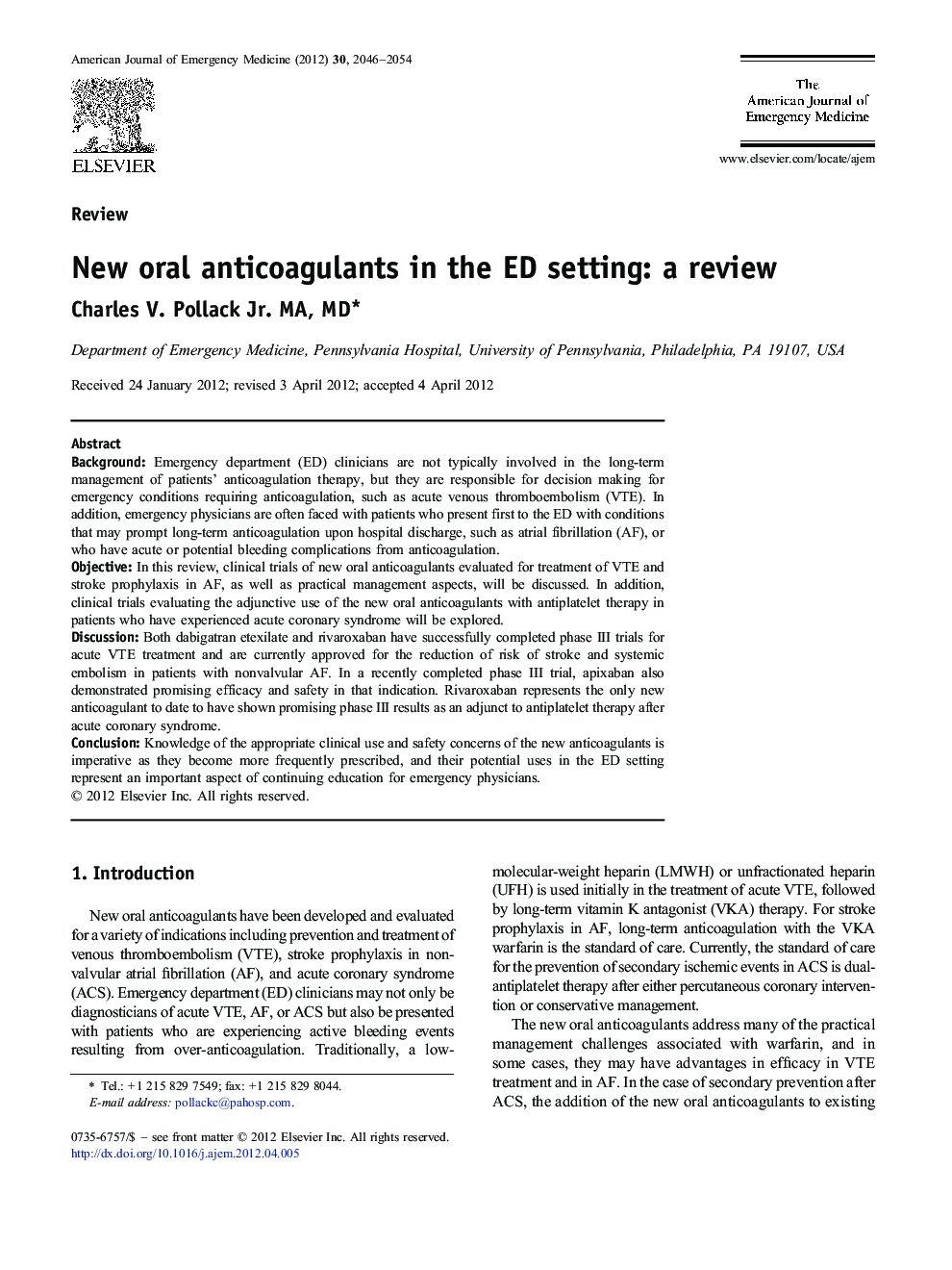| Article ID | Journal | Published Year | Pages | File Type |
|---|---|---|---|---|
| 3224935 | The American Journal of Emergency Medicine | 2012 | 9 Pages |
BackgroundEmergency department (ED) clinicians are not typically involved in the long-term management of patients' anticoagulation therapy, but they are responsible for decision making for emergency conditions requiring anticoagulation, such as acute venous thromboembolism (VTE). In addition, emergency physicians are often faced with patients who present first to the ED with conditions that may prompt long-term anticoagulation upon hospital discharge, such as atrial fibrillation (AF), or who have acute or potential bleeding complications from anticoagulation.ObjectiveIn this review, clinical trials of new oral anticoagulants evaluated for treatment of VTE and stroke prophylaxis in AF, as well as practical management aspects, will be discussed. In addition, clinical trials evaluating the adjunctive use of the new oral anticoagulants with antiplatelet therapy in patients who have experienced acute coronary syndrome will be explored.DiscussionBoth dabigatran etexilate and rivaroxaban have successfully completed phase III trials for acute VTE treatment and are currently approved for the reduction of risk of stroke and systemic embolism in patients with nonvalvular AF. In a recently completed phase III trial, apixaban also demonstrated promising efficacy and safety in that indication. Rivaroxaban represents the only new anticoagulant to date to have shown promising phase III results as an adjunct to antiplatelet therapy after acute coronary syndrome.ConclusionKnowledge of the appropriate clinical use and safety concerns of the new anticoagulants is imperative as they become more frequently prescribed, and their potential uses in the ED setting represent an important aspect of continuing education for emergency physicians.
